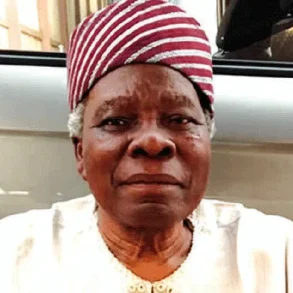By Ayobami Adekanye
Introduction
Yorùbá hate has cast a dark shadow over the Yoruba people, inflicting deep wounds on their cultural identity and pride. This article explores the historical events, systematic marginalisation, and political aspects that exemplify the manifestation of Yorùbá hate, providing concrete examples supported by facts and dates. By delving into these issues, we shed light on the challenges faced by the Yorùbá people and their ongoing struggle for recognition, cultural preservation, and political empowerment.
Language suppression and cultural marginalisation
During the era of British colonialism, the Yorùbá language suffered from systematic suppression. The British administration sought to elevate English as the dominant language, undermining indigenous languages like Yoruba. In 1882, English-based education was introduced, restricting access to education in the Yorùbá language and diminishing its prominence in formal settings. This linguistic discrimination marginalised the Yorùbá people and eroded their cultural heritage. Cultural marginalisation further exacerbated Yorùbá hate as the rich artistic, literary, and musical contributions of the Yorùbá people were often dismissed or overshadowed. This systemic devaluation perpetuated a climate of hate, undermining the cultural significance of the Yorùbá community.
The Rewriting of Yorùbá History
One of the insidious ways Yorùbá hate manifests is through attempts to rewrite Yorùbá history. Historical events, figures, and accomplishments are manipulated or distorted to undermine the Yorùbá people’s sense of pride and worth. This rewriting often serves the purpose of delegitimizing their contributions to Nigerian history and erasing their cultural significance. The motivation behind rewriting Yorùbá history lies in creating a narrative that portrays the Yorùbá people as inferior or insignificant. By undermining their historical achievements, detractors aim to diminish their self-esteem and cultural confidence. This tactic has been particularly effective among younger Yorùbá individuals, who may not have access to accurate historical information and are more susceptible to manipulation.
Manipulation of Yorùbá Identity
Yorùbá hate also involves manipulating the identity of the Yorùbá people, particularly the younger generation. By distorting their perception of themselves and fostering a disconnect from their cultural heritage, those perpetuating hate can further fragment the Yorùbá community. Through various means, including social media, propaganda, and cultural appropriation, the Yorùbá youth are targeted with narratives that question the importance of their language, traditions, and heroes. They are made to believe that their identity should be subsumed within a larger, homogenized Nigerian identity, erasing their unique cultural heritage. As a result, young Yorùbá individuals may see elders who strive to bring awareness to these manipulations as enemies, instead seeking validation from those who do not genuinely care about their well-being but exploit them for their own collective gains.
Diminishing Yorùbá Figures (Targeting Historical Role Models)
Yorùbá hate not only aims to undermine the identity of the Yorùbá people but also seeks to diminish the importance of prominent Yorùbá figures throughout history. By discrediting or downplaying the achievements of Yorùbá leaders, scholars, and cultural icons, individuals driven by Yorùbá hate attempt to strip the Yorùbá people of role models and sources of inspiration. One such example is the deliberate erasure or distortion of the contributions of Chief Obafemi Awolowo, a prominent Yorùbá statesman and nationalist. Similarly, individuals like Professor Wole Soyinka, a Nobel laureate in literature, have faced attempts to undermine their accomplishments. Furthermore, Yorùbá hate often extends to discrediting influential Yorùbá scholars and intellectuals who have made significant contributions to various academic fields.
This erasure of Yorùbá historical figures and their accomplishments has wider implications for the Yorùbá community, depriving younger generations of role models and creating a sense of disconnect from their rich cultural heritage.
Erasure of History and Identity
The deliberate erasure of Yorùbá history and identity, which was initially initiated during the British colonial era, continues to persist in modern times. This erasure is perpetuated through education, cultural narratives, and media representation that downplay the significance of Yorùbá culture and traditions. By recognizing and challenging this erasure, society can work towards a future that embraces diversity, inclusivity, and equal opportunities for all.
Political Manipulation and the Emergence of Yorùbá Ronu
Yorùbá hate has been exploited through political manipulation, particularly during times of political transitions and struggles for power. One notable historical event was the annulment of the June 12, 1993, presidential election, in which the Yorùbá people played a significant role. The annulment sparked protests and led to the emergence of Yorùbá Ronu, a socio-cultural and political group that sought to bring awareness to the political marginalisation and oppression faced by the Yorùbá people. The Yorùbá people have demonstrated remarkable resilience and a commitment to political empowerment and cultural reclamation.
Conclusion
Yorùbá hate, characterized by language suppression, cultural marginalization, the erasure of history, and political manipulation, has left an indelible mark on the Yorùbá people. Through historical events that exemplify these manifestations of hate, we gain insight into the challenges faced by the Yorùbá community. However, the resilience, activism, and cultural pride exhibited by the Yoruba people have paved the way for empowerment and the reclamation of their identity. By acknowledging and addressing Yorùbá hate, society can work towards a future that embraces diversity, inclusivity, and equal opportunities for all.






